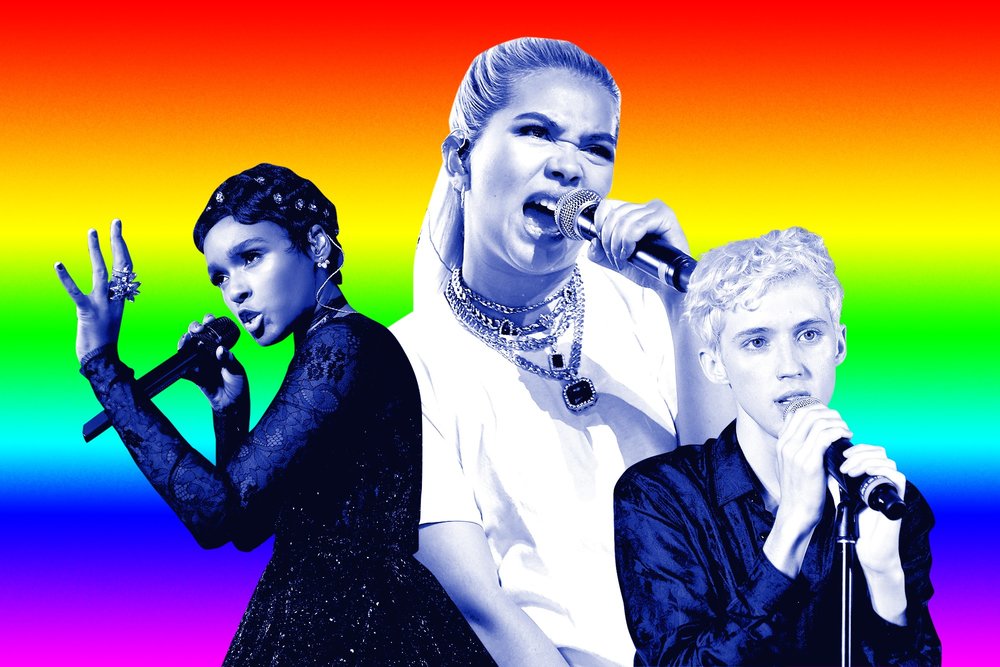Platform’s Robbie Nicholls talks us through the importance of LGBTQ+ representation within the music industry and how it can affect people’s mental health for the better.
These days, you’d struggle to find someone who would argue against true representation of minority groups in films, television, and books. People question unfair casting decisions regularly these days on social media – take, for example, Scarlett Johansson. When she was cast as the lead role in Ghost in the Shell, a character who was originally meant to be a Japanese girl, the film received heavy criticism for white-washing a role that easily could have been used to accurately represent a specific culture.
Accurate representation is essential in entertainment media. Whether it is intentional or not, such media teaches people about minorities or other ethnicities. This cannot be ignored as stereotypical representations lead to inaccurate and offensive presumptions being taught to young people. Black Panther was hailed as a success, because of its not only accurate but developed representation. Former First Lady Michelle congratulated the film for allowing young people to “finally see superheroes that look like them on the big screen”. The importance of this cannot be ignored.
One community, of many, that is still fighting for accurate representation is the LGBTQ+ community; and with 20% of people aged between 18 and 34 now identifying as LGBTQ+, this fight is more important than ever. Seeing someone who looks like you, behaves like you, or loves the same people like you, is so important. It shows people that they are not alone, that others have been through what they’re going through and have come out the other side stronger. For this reason, representation is essential in helping reduce the mental health epidemic that has consumed the LGBTQ+ community.
A report published by LGBTQ+ community Stonewall in 2018 found that 52% of LGBT people have experienced depression in the last year, with one in eight LGBT people aged between 18 and 24 saying they’d attempted to take their own life in the same period.
Representation of the LGBTQ+ community is crucial in creating dialogues about issues that all members of the community face, especially for those who may feel as though they are alone in their struggle. With these issues more visible in the public discourse, it can encourage people to seek the help they need to identify their problems.
Seeing it in films and on television is not the only way forward in the fight for accurate, and lifesaving representation, however. It has long been acknowledged that listening to music can help with your mental health, with it aiding in the release of dopamine. Thankfully, representation is more accessible in the music industry. Due to its more personal nature and the accessibility of music through streaming platforms such as Spotify and YouTube, LGBTQ+ artists are able to reach an audience that can identify with their music without the need of mainstream appeal to get airtime on the radio.
LGBTQ+ artists, such as Hayley Kiyoko, Troye Sivan, and Todrick Hall, have managed to gain an audience through pure authenticity and storytelling. Their relatable artistry gives those who are seeking a safe space an artist who they can relate to, someone who makes them feel seen. The artist themselves can become someone that resonates with the fan, not only because of what they are singing about but because of their identity. Nothing is as valuable as knowing someone understands how you identify, and I say that from personal experience.
Not only this, music that celebrates queerness and everything it stands for can become a lifeline for some. It can be an escape from a situation of exclusivity, and provide a place to express themselves, even if through someone else’s words. Again, it comes from a place of being seen. I’m sure everyone has had that moment where a song can describe how they’re feeling if they didn’t even know how to put it into words. That’s a feeling artists of LGBTQ+ music can create with a single song – a feeling of being understood, and that’s invaluable.
When tackling your own mental health, being understood by those around you is vital in finding the support you need; and music created by LGBTQ+ artists provides this for those in the community that do not feel they have that in their lives. Take “I Am Her” by black trans woman Shea Diamond. Already dubbed as a transgender anthem, Shea describes the song as her anthem to a world that said she shouldn’t exist. It was written as “an anthem for those that felt shunned for simply being who they were.” This exposure of a black, trans woman is invaluable, and it’s just one example of people from the LGBTQ+ community being understood in the music industry.
Words: Robbie Nicholls
Photo source: GQ

